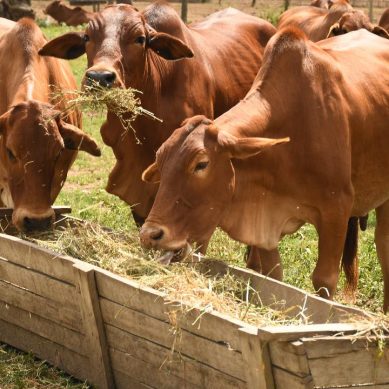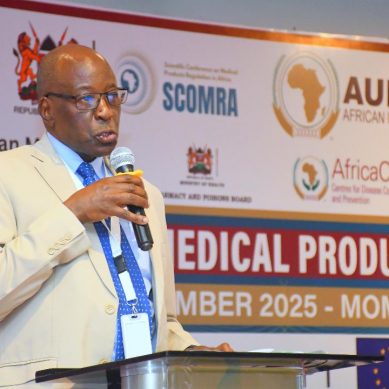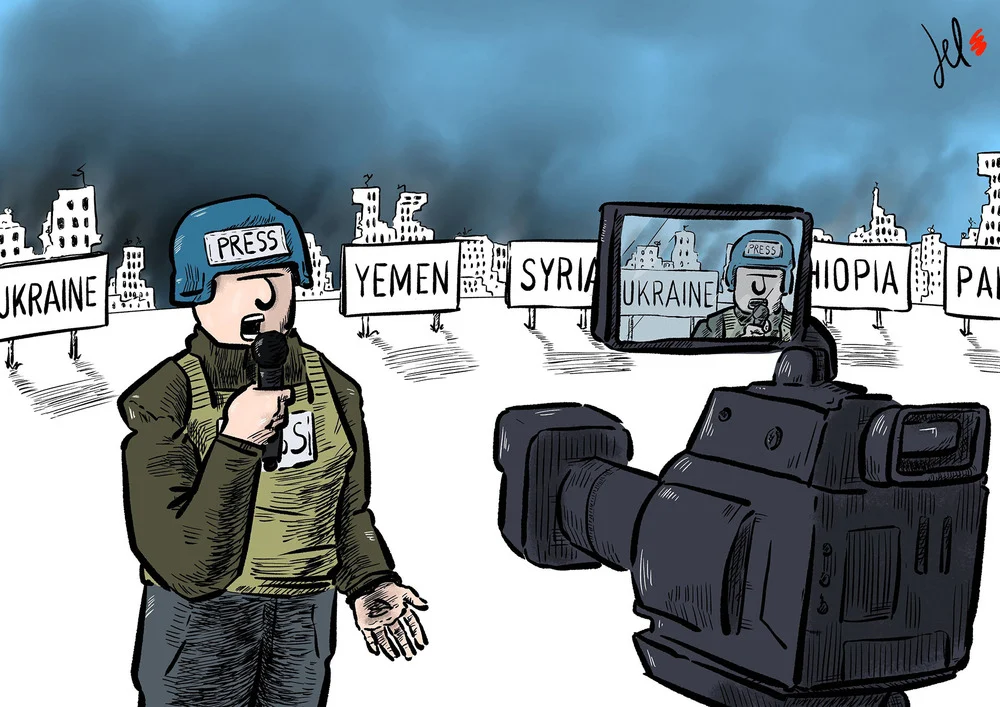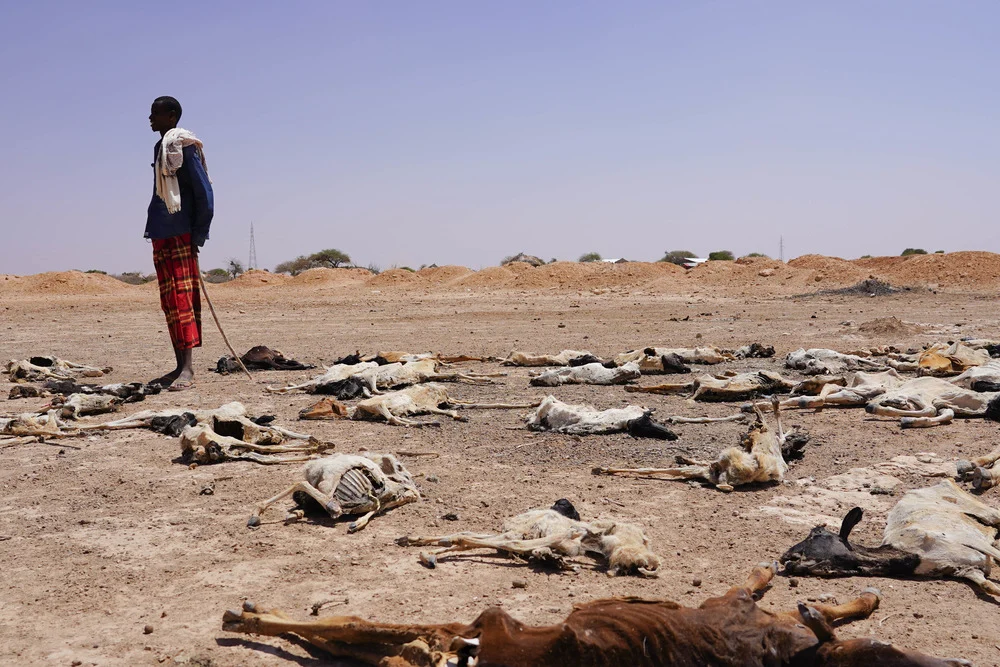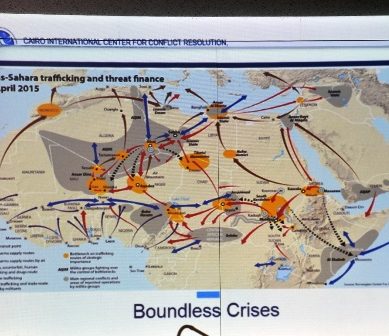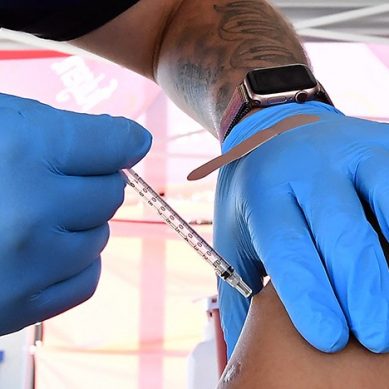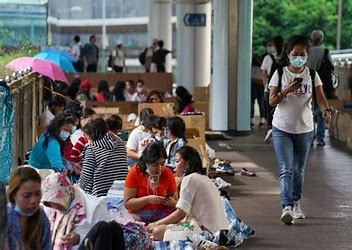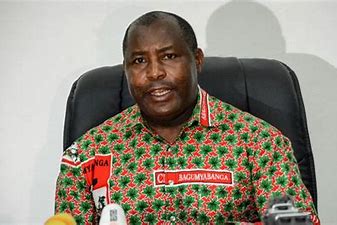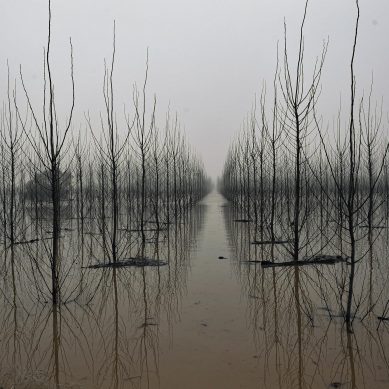‘Ukraine humanitarian response will suck up financial and human resources from other crises facing unprecedented funding shortages
As near-record levels of funding fill the coffers of the Ukrainian aid response, humanitarian insiders worry that resources may be diverted from other crises that are receiving scant attention and remain badly underfunded – from Afghanistan to Yemen to the Horn of Africa. Numerous factors are contributing to the unusually...
Ethiopian hunger: Given the severity of the food situation, my wife is asking me to return so we can die in same place
Funding shortages are hindering the humanitarian response to a severe drought in southeastern Ethiopia as international donors and the federal government focus their resources on the 16-month conflict affecting Tigray and other northern regions. There have been significant delays in launching crucial animal vaccination and fodder distributions for vulnerable livestock...
Why before total solar eclipse temperature drops, birds and insects sing and ambient light becomes otherworldly
In the final moments before a total solar eclipse, the temperature drops, birds and insects sing, and the ambient light becomes otherworldly. Daytime morphs into a 360-degree dusk, and where the sun once hung, a blackhole punches through the sky wreathed by a white ethereal glow. That glow is the...
With US, China and Russia turning Africa into a military playground, Japan looks to counterbalance foreign security presence
As external partners struggle to find appropriate responses to the many challenges facing West Africa, Japan’s approach to peace and security may be an interesting option to explore. Unlike some others active on the security front, Japan maintains good standing with states in the region. It has a collaborative approach...
How Omicron spreads and evades the immune system compared with the previous variants
People infected with the Omicron variant of the coronavirus SARS-CoV-2 are almost 50 per cent more likely to infect those they live with than are individuals infected with the Delta variant, a detailed analysis from England shows. Since it was first detected in South Africa in late 2021, Omicron has...
Dynamic zero Covid: How vaccine complacency has become an unintended side effect of their success
For the handful of places around the world that effectively stopped Covid-19 transmission, vaccine complacency has become an unintended side-effect of their success. Although some regions have managed to blunt transmission of the highly infectious Omicron variant of SARS-CoV-2, others are experiencing considerable outbreaks in populations with low vaccination rates....
Scientists in Ukraine warn of sinking, heaving ground that portends disaster ‘deeper and more dangerous than Chernobyl’
In the Donbas region of eastern Ukraine, the ground has been behaving strangely. In some places, it is sinking; elsewhere it “heaves” – bulging upward, according to satellite data released this week. Before it became a conflict zone, the Donbas has long been Ukraine’s coal country, and the earth is...
Russian invasion of Ukraine viewed as start of long-term plan to shift balance of power from America
Russia’s audacious military assault on Ukraine is the first major clash marking a new order in international politics, with three major powers jostling for position in ways that threaten America’s primacy. The challenges are different from those the US and its network of alliances faced in the Cold War. Russia...
President Ndayishimiye’s new reforms beginning fast-track removal of Burundi from international list of pariah states
Since his inauguration in 2020, President Évariste Ndayishimiye has introduced a raft of foreign and domestic policy reforms to salvage Burundi’s international reputation and restore economic partnerships. His efforts seem to be paying off, with the European Union (EU) announcing on February 8 that it will be lifting the sanctions...
In just two decades, climate change will get worse and make the world sicker, hungrier, poorer and gloomier – report
Deadly with extreme weather now, climate change is about to get so much worse. It is likely going to make the world sicker, hungrier, poorer, gloomier and way more dangerous in the next 18 years with an “unavoidable” increase in risks, a new United Nations science report says. The UN...
